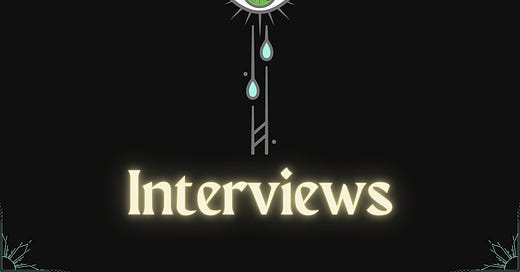On Rejection: Beth Collier
Pop culture analysis and communication strategies? Yes please.
Hi friends,
Welcome our to our last On Rejection interview before I go on a brief hiatus until the end of September. Beth is such a smart person and in interviewing her I learned so much. She also posts really cool communication lessons based on pop culture and internet culture on her LinkedIn—they’re always really interesting. Check it out.
If you’re just discovering Collected Rejections, welcome! You can subscribe to this newsletter on writing and rejection here:

Hi Beth! Tell us about a time you experienced rejection.
I had been working in communication for several years when I moved to London in 2009. I wanted to grow my career in a large global company, and hadn’t anticipated that a financial crisis would hit at the same time my work visa was approved.
But despite some reservations on the timing, I moved to London from New Zealand without a job (and without connections) in July 2009.
I arrived with a mixture of optimism and naivete, unaware just how hard it would be to get a job in a new industry and a new country at that time.
I was told working in financial services would be ‘fast-paced’ and give me a lot of experience, but trying to break into financial services during a financial crisis was not easy.
When I said I wanted to work for a bank, I was flat-out rejected by recruiters. I would suggest that my work in communication was transferable to any industry, but I was competing with people who had been let go from financial service institutions in London.
Plus, as I was reminded, I was a “foreign,” which meant there would be questions if I could “handle” working in the UK.
And if the challenges of timing, nationality and lack of London experience weren’t enough, I was also reminded that some people viewed me, an engaged woman in her early 30s, as a walking baby-making machine.
“So you’re probably planning to have a baby soon” was mentioned to me more than once – by senior people interviewing me.
I wasn’t prepared for the kind of rejection I faced – and it was hard.
But, I was persistent.
And after a few months, I got a job that proved I could work in London – and a year later got a job in financial services, and worked in the industry for 10 years before starting my own communication consultancy.
How did you get over it?
I am over that rejection now, but I sure learned from it.
I think what helped me most was my persistence.
I’m naturally an optimistic person, and during that time I tried to stay positive and focus on what I could control. I could call recruiters, I could tailor my CV, I could search for jobs online.
And I also think it’s important to remind yourself of your strengths, what you’ve achieved, and what you’re capable of.
When you miss out on a job, it’s so easy to take that rejection personally. But we rarely get the whole story. You might be the best candidate, but maybe the boss’s nephew needs a job and gets chosen over you instead.
If you could go back and tell yourself anything right before that experience, what would you say?
You’ll be fine. Things will work out. Keep going.
And I’d tell myself the same thing I tell people who ask for career advice today – Be your own advocate. I didn’t know this at the time, but recruiters are looking for the path of least resistance. They don’t want to have to ‘sell’ a candidate, so you have to sell yourself to them and convince them why they should put you forward.
Are there any books or memoirs about getting over rejection that you can recommend?
I read a book called ‘Rejection Proof’ that I really enjoyed. In it, the author (Jia Jiang) puts himself in scenarios where he expects to get rejected, like asking for a free coffee and if he can do the safety announcement on an airplane. He strengthens his rejection muscle and finds out that more is possible than he realized.
What are you working on now?
I’m designing a new communication workshop with lessons from pop culture. Communication is such a crucial business skill and too much of the training offered to corporates is dull and boring. So I’m out to change that and create workshops that help people learn – and are different and fun!
And I’m always on the lookout for interesting stories to research and write about for my weekly newsletter, Curious Minds. I like to find stories that combine business, creativity, and pop culture. I just finished one about Harry Styles and am working on another one about the origin of the Ferris wheel.
Most of the stories I write about creativity involve rejection at some point, so it’s good to remember that rejection is part of the creative process!
You can follow Beth on LinkedIn.






